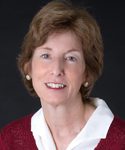Challenges
There are challenges to working at the health center and to training new or young rheumatologists there, an important consideration for an academic medical center such as YSM, Dr. Buckley says.
“You have to see patients more quickly. You need to make decisions quickly,”
she says.
“I do think it’s a good place to train fellows so they understand the barriers to care in that setting, compared to other clinical sites where people have better insurance that covers their medications and medical care, and a car for transportation.
“We are teaching our fellows the ideal way to treat patients given the medical literature and guidelines, and then how to adjust that treatment for patient preferences and comorbidities. But we also have to adjust treatment around a patient’s social situation and the barriers that they’re going to experience when we try to implement the treatment plan. That can get challenging,” she says.
“For example, do I stop medication and let Mr. Smith’s rheumatoid arthritis flare because he didn’t complete the monitoring laboratory testing on time, knowing that his family depends on the income from his landscaping job? What are the health risks of a missed blood test vs. the risks of joint damage and the financial impact of lost work on the patient and family? These are difficult questions, and you have to make these decisions quickly.”
Critical Access to Care
CSHHC has relationships with other federally qualified community health centers in the New Haven region, including one in Bridgeport where there’s a large immigrant population. One of the first patients Dr. Buckley saw at the health center was a woman in her early 20s who had lived in the area since childhood.
“Her family came to the U.S. but was not documented. She was educated here, attended community college and worked a full-time job, but neither she nor her parents had ever gotten health insurance,” Dr. Buckley says.
The young woman had scleroderma. She was diagnosed at the local hospital and referred to a resident-teaching clinic that offers care to people without insurance. “General medicine residents wouldn’t know how to treat this rare condition,” Dr. Buckley says. After two visits, the young woman did not return for follow-up care.
“Many rheumatic diseases impact young people who are at critical points in their illness where lack of treatment will lead to permanent damage. At the same time, their organizational skills and judgment have not fully formed, and they may have significant financial, social, and transportation barriers that interfere with care,” Dr. Buckley says. “Many patients don’t really understand what’s at stake in terms of their future health if they miss care.”
During the period when the young woman did not return for her follow-up appointments, she developed myocardial fibrosis. “She was unaware of this until her heart function dropped so significantly that when she got on the train every day to commute into New York City for work, she found she was very short of breath when she was walking,” Dr. Buckley says.
The woman was later seen at the community health center in Bridgeport, which referred her to the CSHHC and Dr. Buckley. But her illness was too far advanced. She didn’t survive, dying a year later.
